Tag: True Cost of Food Subsidies in India
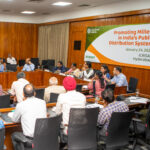
Smart Foods for Smarter Policies: Millets in India’s Public Distribution System
As India intensifies efforts to fight hunger and malnutrition, the Tata-Cornell Institute for Agriculture and Nutrition (TCI) and the International Crops Research Institute for the Semi-Arid Tropics (ICRISAT) are helping Indian policymakers with evidence-based strategies to include millet in the…

Key Takeaways from TCI’s Meeting on the Future of India’s Public Distribution System
On January 9 at the India Habitat Centre in New Delhi, the Tata-Cornell Institute (TCI) brought together a group of researchers interested in food-based safety nets to discuss future pathways for India’s Public Distribution System (PDS).
Welcoming the group, TCI…

TCI Publishes 2023–24 Annual Report
The Tata-Cornell Institute for Agriculture and Nutrition (TCI) has published its 2023–24 Annual Report.
The report offers an in-depth look at the full range of TCI’s research and other activities, including projects like Zero-Hunger, Zero-Carbon Food Systems, and field research…
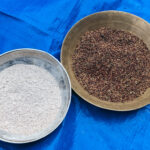
Millets Are Key to Making the PDS Environmentally Friendly
In 2021–22, India spent US$17.4 billion on the Public Distribution System, or PDS. For a program that ensures food security for over 800 million people, that seems like a good bargain. However, new research on the hidden costs of the…

Reducing the True Cost of Food-Based Safety Nets: Evidence from India’s Subsidized Food Program
Abstract Public procurement of food plays a pivotal role in determining the production and consumption of various food items. This is particularly true for staple grains in countries such as India, where the government procures over 40 percent of rice and wheat. This grain is...
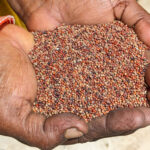
Millets Make Sense for India’s PDS
Replacing some of the rice provided through India’s Public Distribution System (PDS) could lower the costs associated with the subsidized food program by $770 million, according to new research from the Tata-Cornell Institute for Agriculture and Nutrition (TCI).
In a…
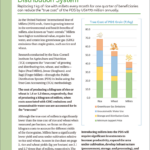
Promoting Millets in the Public Distribution System
This special policy brief provides cost-saving estimates associated with the potential introduction of millets into India’s Public Distribution System (PDS), which provides subsidized food to more than 800 million people. This analysis provides policymakers and other stakeholders with valuable information that can be used to...
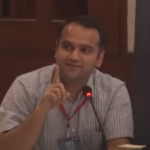
TCI Researcher Talks True Cost of Food at World Sustainable Development Summit
At the World Sustainable Development Summit in New Delhi last week, the Rockefeller Foundation and the Tata-Cornell Institute for Agriculture and Nutrition (TCI) organized a panel event entitled “True Value of Food: A Call to Action to Solve Climate Change…
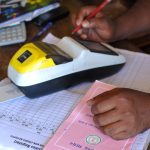
Environmental and Health Effects Add Billions in Hidden Costs to India’s Public Distribution System
Through the Public Distribution System (PDS), the Indian government ensures the food security of its most impoverished citizens. However, new research from the Tata-Cornell Institute for Agriculture and Nutrition (TCI) reveals that the production of food grain for the PDS…
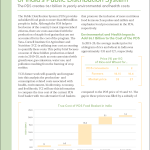
Revealing the Hidden Production Costs of India’s Public Distribution System
This policy brief presents preliminary estimates of the environmental and health-related costs associated with the production of food grain for India’s Public Distribution System (PDS), a program that provides subsidized food to more than 800 million Indians. This new analysis provides government policymakers, advocates, and...

